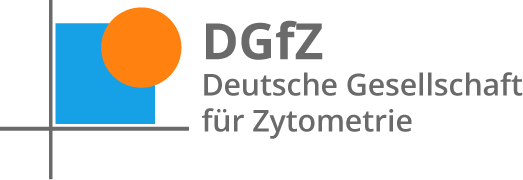Germany
Deutsche Forschungsgemeinschaft
The Deutsche Forschungsgemeinschaft (German Research Foundation) funds research projects in all fields of science and the humanities. This includes support for individual projects and research collaboration, awards for outstanding research achievements, and funding for scientific infrastructure and scientific cooperation.
The DFG recently published results of a round table discussion on flow cytometry and cell sorting. The items discussed in the guide lines should be considered when applying for new instrumentation. Moreover the guidelines address a lot of issues concerning the management and organisation of Core Facilities and contain valuable information both for new and advanced Core Facility Managers.
The DFG also modified their guide lines for grant applications and it is now possible to apply for money to cover the costs of using Core Facility Resources. However the DFG already listed some criteria, that have to be fulfilled to do so. They are published in the current version of the Leitfaden für Sachbeihilfen Formular_1.02: „Die DFG kann Betriebs- und Folgekosten für Großgeräte übernehmen, die durch projektspezifischen Mehrbedarf bedingt sind. Diese Kosten sollten möglichst pauschaliert sein. Es sollte eine Nutzerordnung vorgelegt werden…[]…Pauschalierte Betriebs- und Folgekosten, die die o. a. Bedingungen erfüllen, können unter Ziff. 6 “Sonstige Kosten” beantragt werden.”
Proposals for major research instrumentation are reviewed according to technical and scientific criteria. Guidelines and forms for instrument grant applications can be found in the following list. Formulare und Merkblätter für Großgeräteanträge
Europe
ERA instruments
The ERA-Net initiative for promoting infrastructure funding in the Life Sciences aims at initiating coordination and a sustainable network of ministries, charities, funding agencies and research councils active in funding of life science Research Infrastructure (RI). This European platform of relevant stake-holders will set up comprehensive tools for adequate treatment of instrumentation related topics enabling conclusions for research policies on both a national and European level.
ERA instruments has already published the following recommendations for Research Infrastructures: Efficient Operation and Access, Funding Schemes
European Cytometry Network (ECN)
A network to establish communication, cooperation, education and promotion of Cytometric science and techniques among its members. The European Cytometry Network (ECN) was initiated during a meeting 2008 held at the EMBL Heidelberg and organised by the EMBL Flow Cytometry Core Facility (head: Andy Riddell). The aim is to organise cytometrists from all over Europe around a system that provides modern infrastructure to build up connections between professionals in Cytometry (ECN meeting Report). It currently hosts more than 700 members and the Core Managers Group within this social network has more than 80 members. This network is by invitation only. You can always contact Network creators Andy Riddell and Alexis Gonzales to receive an invitation.
flowcytometry UK
The first UK Core Managers forum was held on 1st November 2006 and was organised to provide a forum for managers of Core Flow Facilities to discuss matters of common interest. It is now part of the annual meeting of the society. The results of the 2009 Core Managers survey on machine usage, charging and salary levels can be found on their webpage. Years before Derek Davies (Cancer Research, UK) and Simon Monard (MRC Centre for Regenerative Medicine) already presented The (Flow) Cytometry Core Facility: Challenges for the future, still worth to read it.
International
National Center for Research Resources
The National Center for Research Resources has organised a workshop on the efficient Management and Utilization of Core Facilities (July 14 – 15, 2009). Participants discussed finding and accessing core facilities, government policies governing managing and reporting, managing core facilities, training core directors and quality improvement. An executive summary and a final_workshop_report are available for download. The workshop filled two days of presentations and discussions, which can be viewed online (day1, day2) and which shows the up-to-dateness of the topics.
International Society for Advancement of Cytometry (ISAC)
The International Society for Advancement of Cytometry (ISAC) has set up a Core Managers Committee to address the needs of several interest groups within its membership. During the past years the core managers workshop has become an integral part of the societies conferences. The topics of the workshop are manifold. For an example there is a handout (Core Managers Workshop) from CYTO Conference 2010 in Seattle. The Core Managers Committee has put some considerations online that cover Facility issues, Fiscal issues and comments on the Organisation of a Core Facility.
The journal of the International Society for Advancement in Cytometry, CYTOMETRY A, has already published articles that cover topics of Core Facility Management, for example biosafety (Schmid et al., 2003, 2007) and Best Practice (Moore and Roederer, 2009).
Salk Institute CCMI
A comprehensive list of flow cytometry WWW links is located at the Core Facility site of the Salk Institute CCMI, La Jolla, California.
